Mirza Fakhrul Islam Alamgir Biography, Career, Wiki & More
A name that strikes a chord with Bangladesh’s political scene, Mirza Fakhrul Islam Alamgir has traveled a wide and varied path and left a lasting impression on the annals of the nation’s history. Fakhrul Islam Alamgir was born on August 1, 1948, in Thakurgaon District, Rangpur, Bangladesh. He has achieved prominence in a variety of fields, including politics.
Quick View
| Category | Information |
|---|---|
| Nickname | Fakhrul |
| Birthplace | Thakurgaon District, Rangpur, Bangladesh |
| Birthday | August 1, 1948 |
| Age Now | 75 Years, 4 Months, 27 Days (as of December 8, 2023) |
| Home Town | Rangpur |
| Current Town | (Update Soon) |
| Residency | (Update Soon) |
| Religion | (Update Soon) |
| Occupation | Politician |
1948
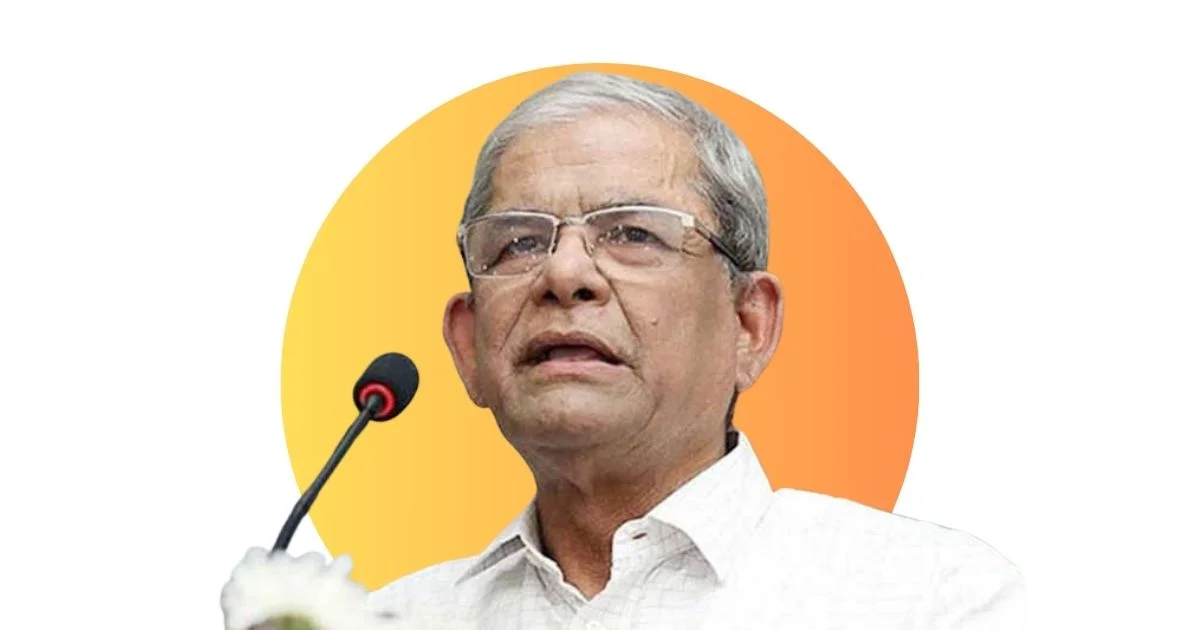
A Beginning in Thakurgaon District
Mirza Fakhrul Islam Alamgir is born on August 1, 1948, in Thakurgaon District, Rangpur, Bangladesh.
1950s
Early Years and Primary Education
– Mirza Fakhrul Islam Alamgir embarks on his early childhood in Thakurgaon District.
– He begins his primary education, taking the first steps on his educational journey.
1960s
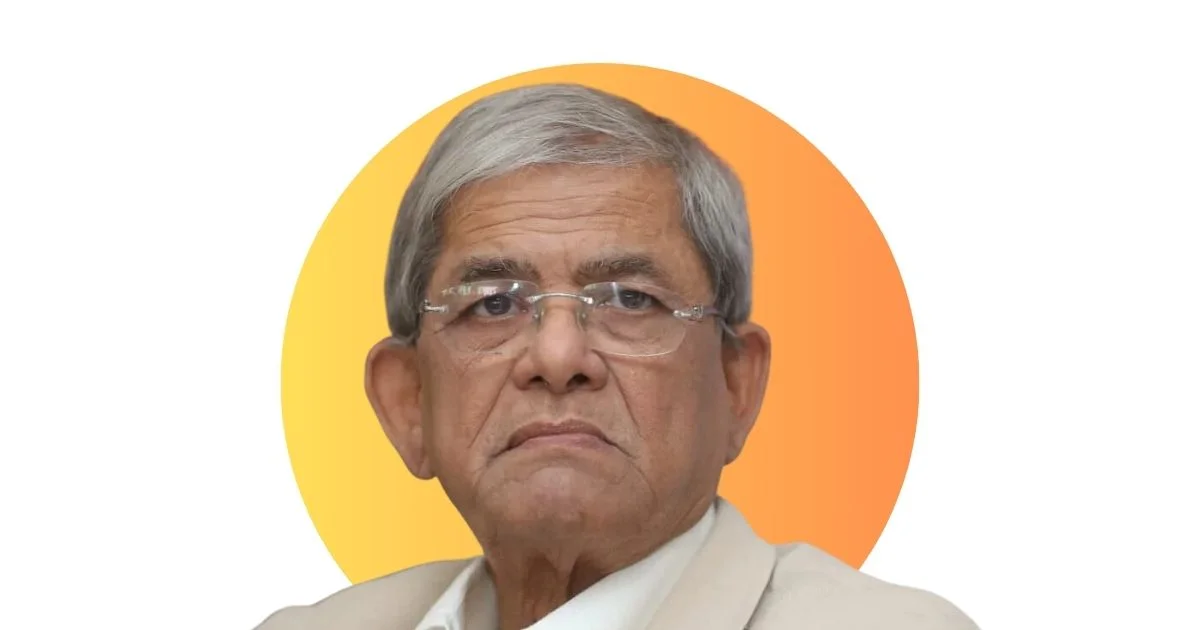
Formative Years at Dhaka University
– Mirza Fakhrul Islam Alamgir engages in student politics at Dhaka University during the 1960s.
– Actively involved in the East Pakistan Students Union (EPSU), he rises through the ranks, becoming the president of Dhaka University during the 1969 uprising.
1970s
Transition to Teaching and Government Roles
– In 1972, Alamgir becomes a teacher of economics at Dhaka College.
– He takes on a role as an auditor in the Bangladesh government’s Directorate of Inspection and Audit.
1980s
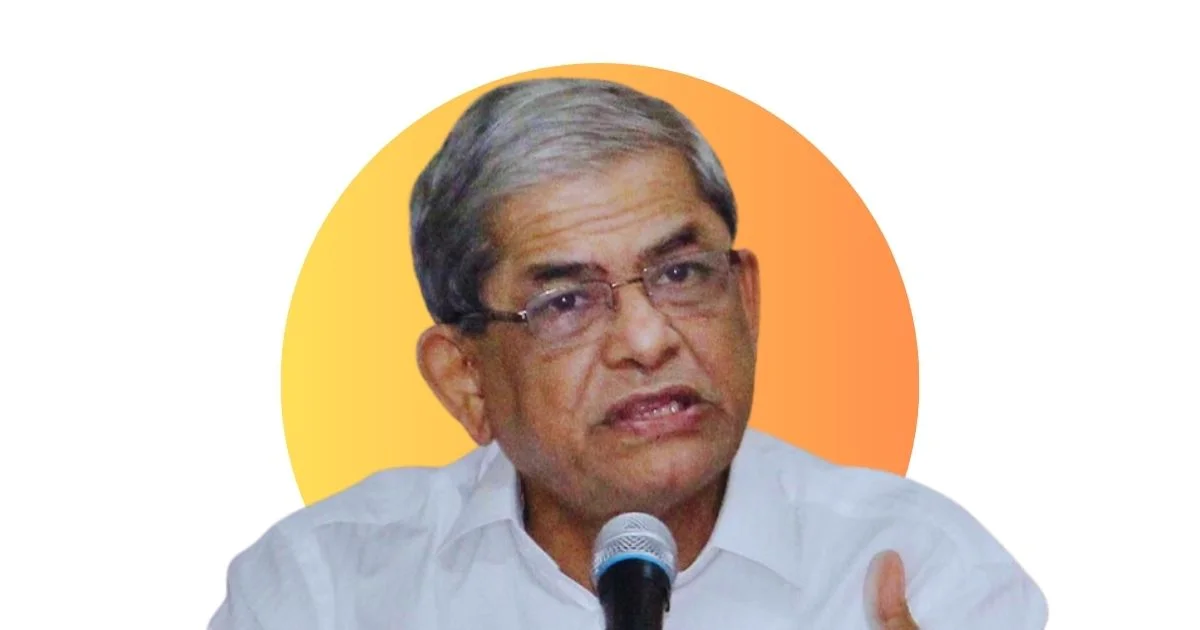
Teaching and Political Ascent
– Alamgir teaches economics at Thakurgaon Government College until 1986.
– In 1988, he resigns from his government post and successfully runs for chairman in Thakurgaon municipality.
1990s
Entry into Formal Politics
– In the early 1990s, Alamgir joins the Bangladesh Nationalist Party (BNP).
– In 1992, he becomes the president of BNP’s Thakurgaon District unit.
2001

Victory in Parliamentary Election
– Alamgir wins the 8th parliamentary election in 2001 as a Bangladesh Nationalist Party candidate.
– He is appointed Minister of State, initially overseeing the Ministry of Agriculture and later the Ministry of Civil Aviation and Tourism.
2008
Return to Parliamentary Arena & Recognition at the 5th BNP Council
– Alamgir runs again in the 9th parliamentary election in 2008 but faces a narrow defeat.
– The 5th National Council of BNP in December 2008 names Alamgir senior joint secretary general, a high-valued post within the party.
2011
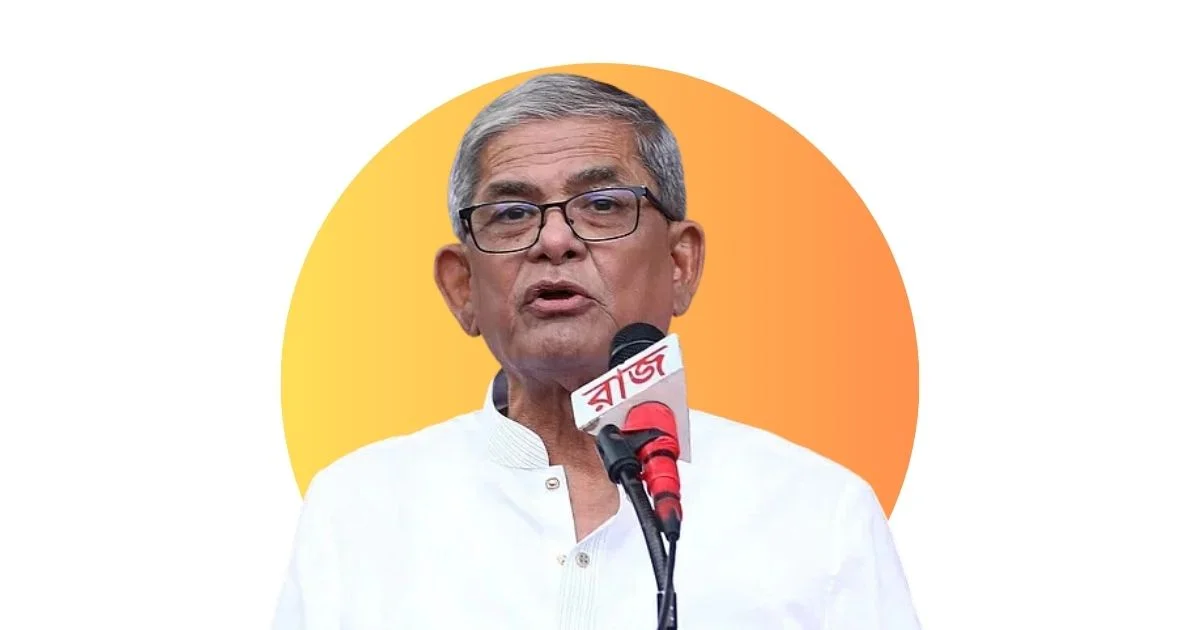
Acting Secretary General of BNP & Motorcade Attack
– After the death of secretary general Khandaker Delwar Hossain in March 2011, Alamgir is named acting secretary general by Begum Khaleda Zia.
– Alamgir’s motorcade is violently attacked in Lakshmipur on August 2, 2011, leading to heightened tensions.
2012
Criticism of Government
In February 2012, Alamgir criticizes the government for its role in the Pilkhana massacre, emphasizing concerns about national security.
2016
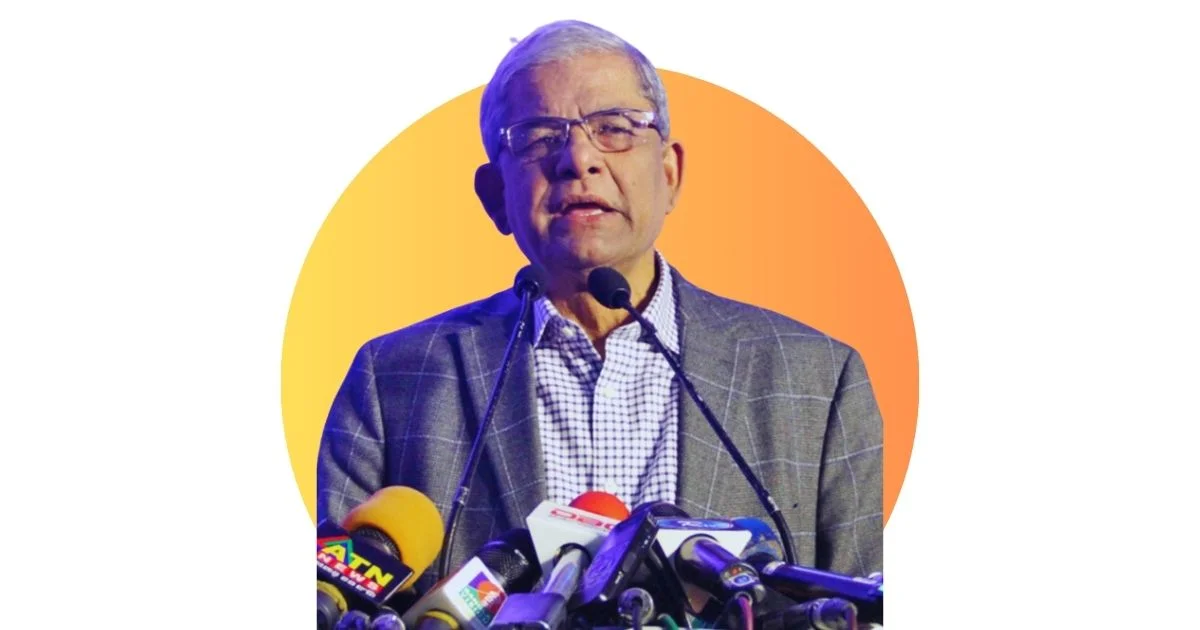
Secretary General of BNP
This is Timeline description, you can change me anytime click here
2023
Net Worth and Recognition & The Journey Continues
As of June 1, 2023, various sources estimate Alamgir’s net worth to be around $5 million & Mirza Fakhrul Islam Alamgir continues to be a symbol of resilience, navigating the intricate web of Bangladeshi politics with determination.
Early Life and Education
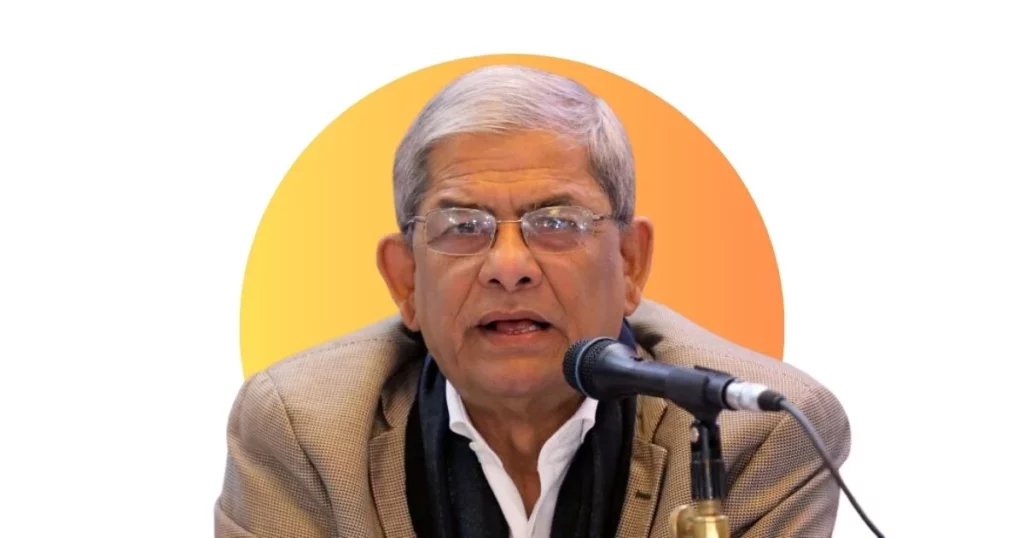
Born from a political family, Mirza Fakhrul Islam Alamgir’s father, Mirza Ruhul Amin, served as a notable member of parliament for multiple times. Being raised in such a highly sensitive milieu, Alamgir became interested in public issues at a young age. Alamgir was born into a household, to housewife Mirza Fatima Amin, and it was clear from an early age that he was meant to dedicate his life to helping the public.
He majored in Economics at the University of Dhaka, where his academic career got its start. He got involved in student politics during his time at the university, joining the East Pakistan Students Union (EPSU), which is currently the Bangladesh Students Union. After he was chosen to serve as the organization’s SM Hall unit’s secretary-general, his leadership abilities were apparent. He rose to the presidency of Dhaka University during the height of the 1969 rebellion against the Ayub Khan government, demonstrating his increasing power.
Beginning in 1972, Alamgir began his dual dedication to education and public service when he moved into a post as an economics instructor at Dhaka College. His career path included positions as an auditor in the Directorate of Inspection and Audit of the government of Bangladesh.
Family
| Member | Relationship | Details |
|---|---|---|
| Mirza Ruhul Amin | Father | Former Member of Parliament |
| Mirza Fatima Amin | Mother | Homemaker (d. 2018) |
| Rahat Ara Begum | Wife | Works in an insurance company in Dhaka |
| Mirza Shamaruh | Daughter | Post-doctoral fellow in Australia |
| Mirza Safaruh | Daughter | School teacher in Dhaka |
| Mirza Ghulam Hafiz | Uncle | Former BNP politician, Minister of Land (1978–79), Minister of Law, Justice, and Parliamentary Affairs (1991–96), Speaker of the 2nd national parliament of Bangladesh (1979–82) |
| Wing Commander S. R. Mirza | Uncle | Served in the first government of Bangladesh (Mujibnagar Government) in April 1971, headed the Directorate of Youth Camps during 1971 |
Entry into Politics
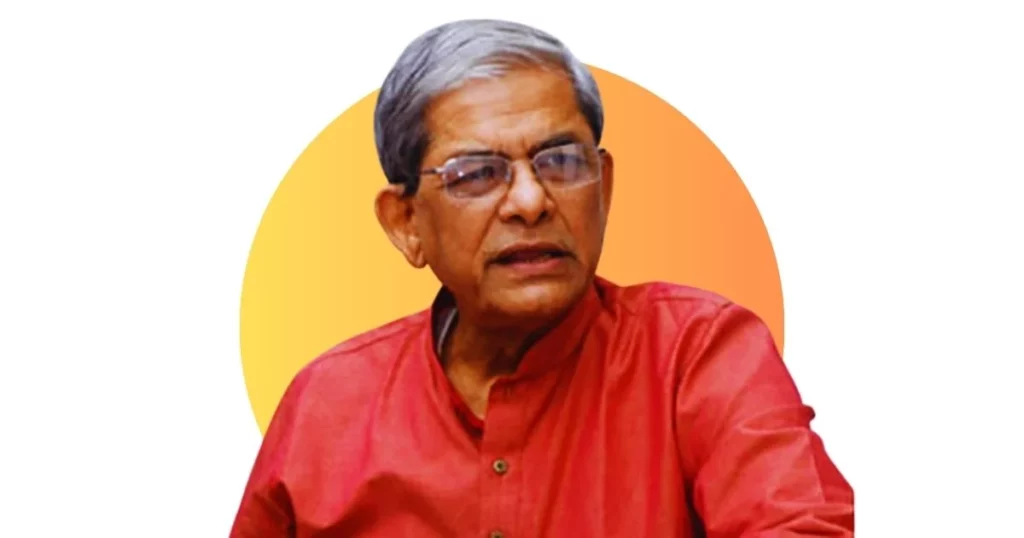
When Mirza Fakhrul Islam Alamgir resigned from his government position in 1986 in anticipation of impending municipal elections, it became clear that he was going into formal politics. The pivotal moment occurred in 1988 when he ran as a neutral candidate and won the Thakurgaon municipality chairmanship. His larger-scale political career officially began with this triumph.
Alamgir joined the Bangladesh Nationalist Party (BNP) in the early 1990s amid a nationwide rebellion against Gen Hussain Muhammad Ershad’s military dictatorship. He cemented his place in the party when he was proposed for president of the BNP’s Thakurgaon District unit in 1992.
Alamgir’s tenacity paid off in the 8th parliamentary election in 2001, despite suffering defeats in the 5th and 7th parliamentary elections in 1991 and 1996. He won, handily defeating his Awami League rival while running as a candidate for the Bangladesh Nationalist Party. His nomination as the Minister of State resulted from this triumph; he was responsible for the Ministry of Agriculture at first, and then the Ministry of Civil Aviation and Tourism.
Parliamentary Journey
In 2008, Mirza Fakhrul Islam Alamgir re-ran in the 9th parliamentary election, carrying on his legislative career. Despite a close loss, he never wavered in his resolve or dedication to serving the people. Alamgir received additional recognition during the BNP’s 5th National Council in December 2008 when he was appointed senior joint secretary general, a highly significant role within the party.
With the passing of Secretary General Khandaker Delwar Hossain in March 2011, the political landscape underwent a transformation. Alamgir was named acting secretary general by BNP chair Begum Khaleda Zia, a decision that caused some disagreement within the party. Still, Alamgir remained an important party spokesperson, especially when it came to challenging the Awami League-led administration that came to power in January 2009.
While serving as acting secretary general, Alamgir organized large-scale protests against the government, warned against attempts to stifle opposition activity, and continued to voice his criticism of it on a number of subjects. Under his direction, the party organized nationwide public demonstrations and protests, particularly around the caretaker government issue.
Challenges and Controversies
Alamgir has had difficulties and disagreements throughout his political career. His motorcade was attacked violently on August 2, 2011, while it was making its way to the main town for a party gathering in Lakshmipur. Despite his escape unscathed, the episode raised tensions as Alamgir and his allies claimed the attackers were part of the ruling Awami League.
Alamgir raised worries about national security when he denounced the government’s involvement in the Pilkhana killing in February 2012. He emphasized his commitment to accountability and openness by accusing the Awami League government of conducting an insufficient investigation into the incident.
In March 2012, Alamgir demonstrated his ongoing power inside the party when he emerged as one of the leading candidates for the position of BNP secretary general within a changing political environment.
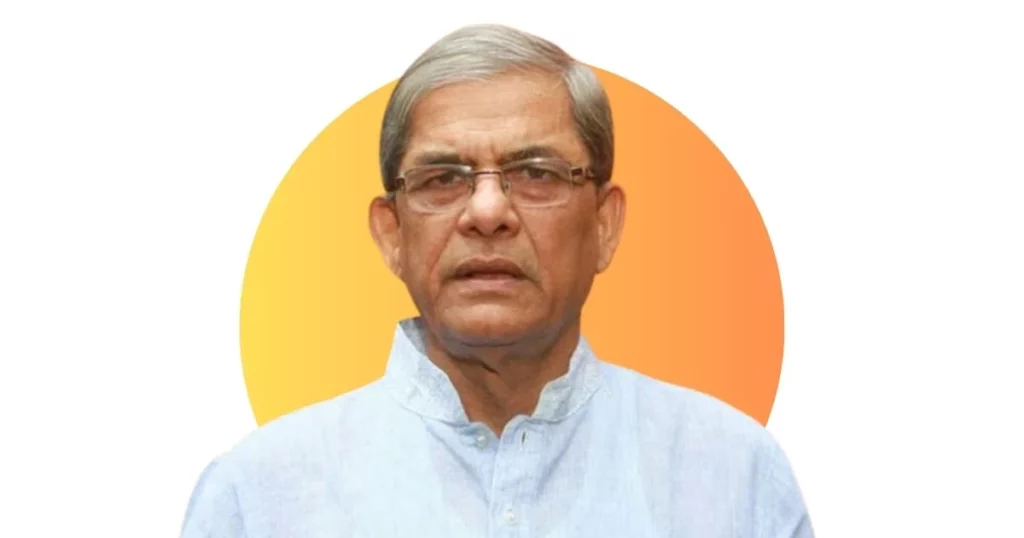
Personal Life
In addition to politics, Mirza Fakhrul Islam Alamgir’s private life offers insight into the person behind the politician. Rahat Ara Begum, who studied at the University of Calcutta and is presently employed by a Dhaka insurance company, is his spouse. Mirza Shamaruh and Mirza Safaruh, the couple’s two daughters, have both sought further education and are making contributions to society in their various disciplines.
Alamgir’s family history enhances his autobiographical story much more. His uncle, Mirza Ghulam Hafiz, was a BNP politician who was elected as an MP from a Dhaka constituency in 1979 and held positions as Minister of Land (1978–79), Minister of Law, Justice, and Parliamentary Affairs (1991–1996). Hafiz later rose to the position of speaker of Bangladesh’s second national parliament (1979–82). As the head of the newly established Directorate of Youth Camps, which was in charge of supervising training facilities for potential liberation fighters, another uncle, Wing Commander S. R. Mirza, was involved in the first government of Bangladesh, the Mujibnagar Government, which was established in exile in April 1971.
Beyond Politics
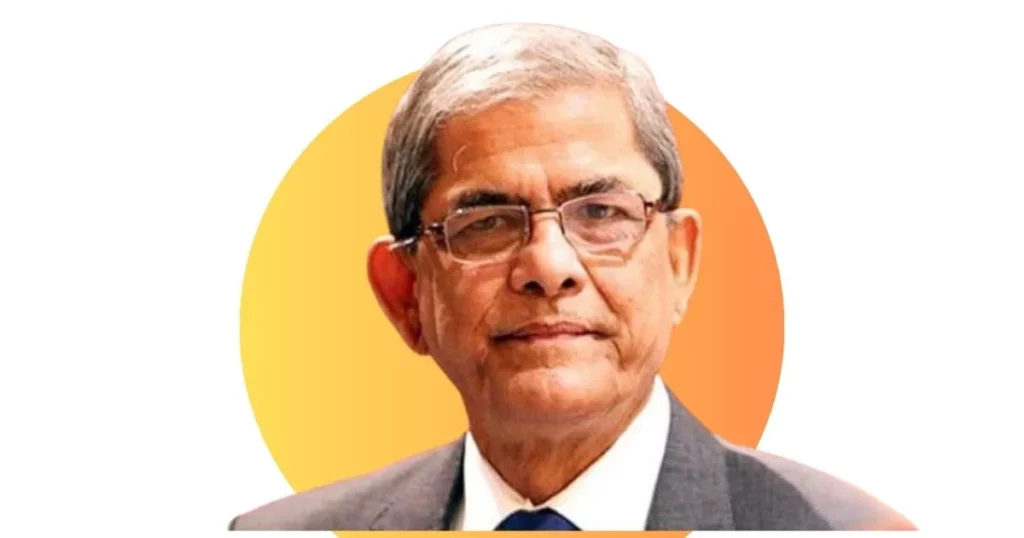
The complex journey of Mirza Fakhrul Islam Alamgir goes beyond politics. His dedication to education is demonstrated by his academic experience as an economics teacher. His steadfast stance on matters of accountability and national security demonstrates a politician with a moral outlook. The difficulties he encountered and the disputes he resolved highlight how complicated Bangladeshi politics are.
Alamgir is seen by the public as more than just a politician; he is a representation of tenacity, willpower, and a voice for the common man. He has become well-known due to his numerous media appearances as the BNP’s spokesperson, offering an alternate viewpoint in Bangladesh’s vibrant political discourse.
Net Worth and Recognition
Mirza Fakhrul Islam Alamgir’s projected net worth as of June 1, 2023, as reported by a number of sites, including Wikipedia, Forbes, and Business Insider, is $5,000 million. His lengthy career in politics and public service is reflected in his financial situation.
Favorite Things of Fakhrul
| Category | Favorite |
|---|---|
| Food | Traditional Bangladeshi cuisine |
| Book Genre | Political and Historical |
| Hobbies | Reading, Public Speaking, and Networking |
| Music Genre | Classical Bangla Music |
| Movie Genre | Documentary and Political Films |
| Leisure Spot | Historical Places and Cultural Landmarks |
| Sport | Notable interest in Cricket |
| Color | Earthy Tones and Deep Blues |
| Travel Spot | Preferably within Bangladesh, exploring local culture |
| Activity | Engaging in Community and Social Welfare Initiatives |
Some Lesser-Known Facts About Mirza Fakhrul
- Educational Background: Before delving into politics, Mirza Fakhrul Islam Alamgir pursued his academic interests. He was a teacher of economics at Dhaka College in 1972 and continued to contribute to education by teaching economics at Thakurgaon Government College until 1986.
- Neutral Candidacy in Municipal Elections: In a unique move, Alamgir resigned from his government post in 1986 and ran for the chairman position in Thakurgaon municipality in the 1988 municipal elections as a neutral candidate. This demonstrated his commitment to local governance.
- Motorcade Attack in 2011: Mirza Fakhrul Islam Alamgir faced a dangerous situation in his political career when his motorcade came under a violent attack in Lakshmipur on August 2, 2011. While he emerged unharmed, the incident marked a turbulent moment in his journey.
- Critical Stance on the Pilkhana Massacre: In February 2012, Alamgir took a strong stance against the government concerning the Pilkhana massacre. He criticized the government’s role in the incident, highlighting concerns about its impact on Bangladesh’s national security.
- Family Legacy in Politics: Mirza Fakhrul Islam Alamgir comes from a family with a significant political legacy. His father, Mirza Ruhul Amin, was a former Member of Parliament, and he has uncles who held prominent positions in politics, including Mirza Ghulam Hafiz, a former BNP politician and Speaker of the 2nd national parliament.
- Active Role in Student Politics: Alamgir’s political journey began in his student years at Dhaka University, where he was not only a member of the East Pakistan Students Union (EPSU) but also held leadership positions, eventually becoming the president of Dhaka University during the 1969 uprising.
- Acting Secretary General Controversy: Alamgir’s appointment as the acting secretary general of the BNP in 2011 was not without controversy. Some senior BNP figures disputed the nomination, arguing that the BNP constitution did not allow for such an appointment. The dispute was resolved just hours before Begum Khaleda Zia left for Saudi Arabia.
- Diverse Professional Background: Apart from his involvement in politics, Alamgir worked as an auditor for the Bangladesh government’s Directorate of Inspection and Audit. This diverse professional background adds another layer to his profile, showcasing a range of experiences beyond the political sphere.
- Top Contender for BNP’s Secretary General Post: As of March 2012, Alamgir was considered one of the top contenders to fill the post of BNP’s secretary general, highlighting his standing within the party and his potential for key leadership roles.
- Contribution to Agriculture and Tourism Ministries: During his term as a Minister of State, Alamgir was initially in charge of the Ministry of Agriculture. Later, he took on the responsibilities of the Ministry of Civil Aviation and Tourism. His involvement in these sectors showcases a multifaceted approach to governance.
Conclusion
A living example of Mirza Fakhrul Islam Alamgir’s unwavering dedication to public service is his rise from student politics at Dhaka University to his current position as secretary general of the Bangladesh Nationalist Party. His personal life, family history, and contributions to education demonstrate the breadth and depth of his experiences outside of the political sphere.
Mirza Fakhrul Islam Alamgir is a symbol of tenacity as his 75th birthday draws near. He has navigated the complex political landscape of Bangladesh with a resolute commitment to maintain values and promote the well-being of the populace. His narrative is far from over, but it has left a lasting impression on Bangladesh’s political history.



